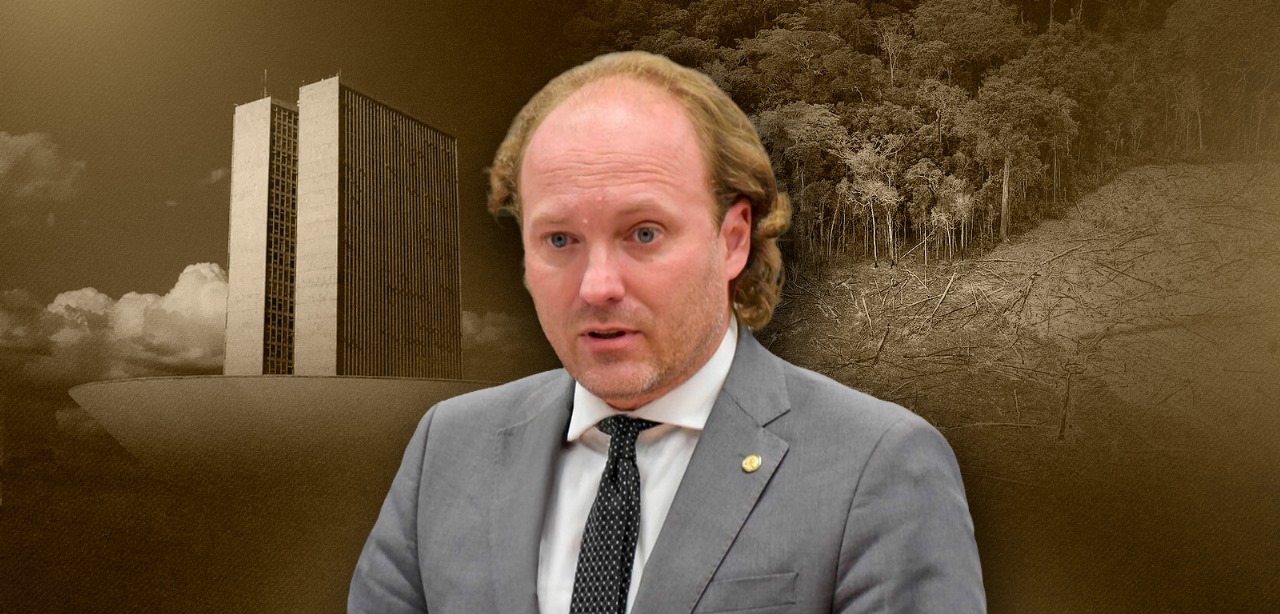Exclusive: Ibama seeks at least 40 vetoes to bill weakening environmental licensing
25 de July de 2025

By Lucas Thiago – From Cenarium
MANAUS (AM) – Speaking exclusively to CENARIUM, the president of the Brazilian Institute of Environment and Renewable Natural Resources (Ibama), Rodrigo Agostinho, confirmed on Monday, July 21, in Manaus (AM), that the agency submitted a technical note, alongside the Ministry of the Environment and Climate Change, requesting 30 to 40 presidential vetoes to Bill 2159/2021, which loosens environmental licensing regulations and was recently approved by the Chamber of Deputies.
“Ibama had already issued a technical note warning about a number of issues, and the Ministry of the Environment is now discussing them with the Chief of Staff’s Office. Ibama’s proposal is that there be at least 30 to 40 vetoes in the bill so we can truly achieve a balance between development and sustainability,” said Rodrigo Agostinho during the opening of the 8th International Congress on Environmental Education of Portuguese-Speaking Countries and Communities on Monday.
The bill now awaits presidential sanction by Luiz Inácio Lula da Silva (PT), who has 15 working days to either fully or partially veto it. Agostinho emphasized the importance of dialogue around environmental licensing and criticized what he called “magical solutions” such as the bill known by critics as the “Devastation Bill.”
“We need a balance point, and Brazil is under immense international pressure regarding sustainability. We have six terrestrial biomes, 20% of the world’s living species, 50% of our territory covered by native vegetation, and the largest tropical forest on Earth. We must reconcile these factors. Ibama is against magical fixes — we need to confront our challenges head-on, not invent shortcuts like self-declared licenses,” said Agostinho.
Impacts of BR-319
In the interview, Agostinho cited Amendment No. 9, introduced by Senator Eduardo Braga (MDB-AM) in the Senate and upheld in the Chamber, which exempts already paved roads from environmental licensing, including the BR-319, which connects Manaus (AM) to Porto Velho (RO).
Though seen by some as a way to advance long-delayed infrastructure projects that depend on Ibama’s licensing, Agostinho warned the measure would open up “new frontiers of deforestation.” “There’s no such thing as an ecological highway in Brazil. All roads have led to more wildlife being run over, water resource problems, siltation, drainage issues, and — especially in the Amazon — new deforestation frontiers. Even existing highways in Brazil operate with environmental licenses,” he explained.
Agostinho also mentioned the BR-163, which links Pará to Mato Grosso, as a cautionary example:
“We don’t want BR-319 to turn into a major problem like the Trans-Amazonian Highway has become. Along BR-163, we lost three million hectares to deforestation because it opened new frontiers. That’s exactly what we don’t want to happen with BR-319,” he concluded.

